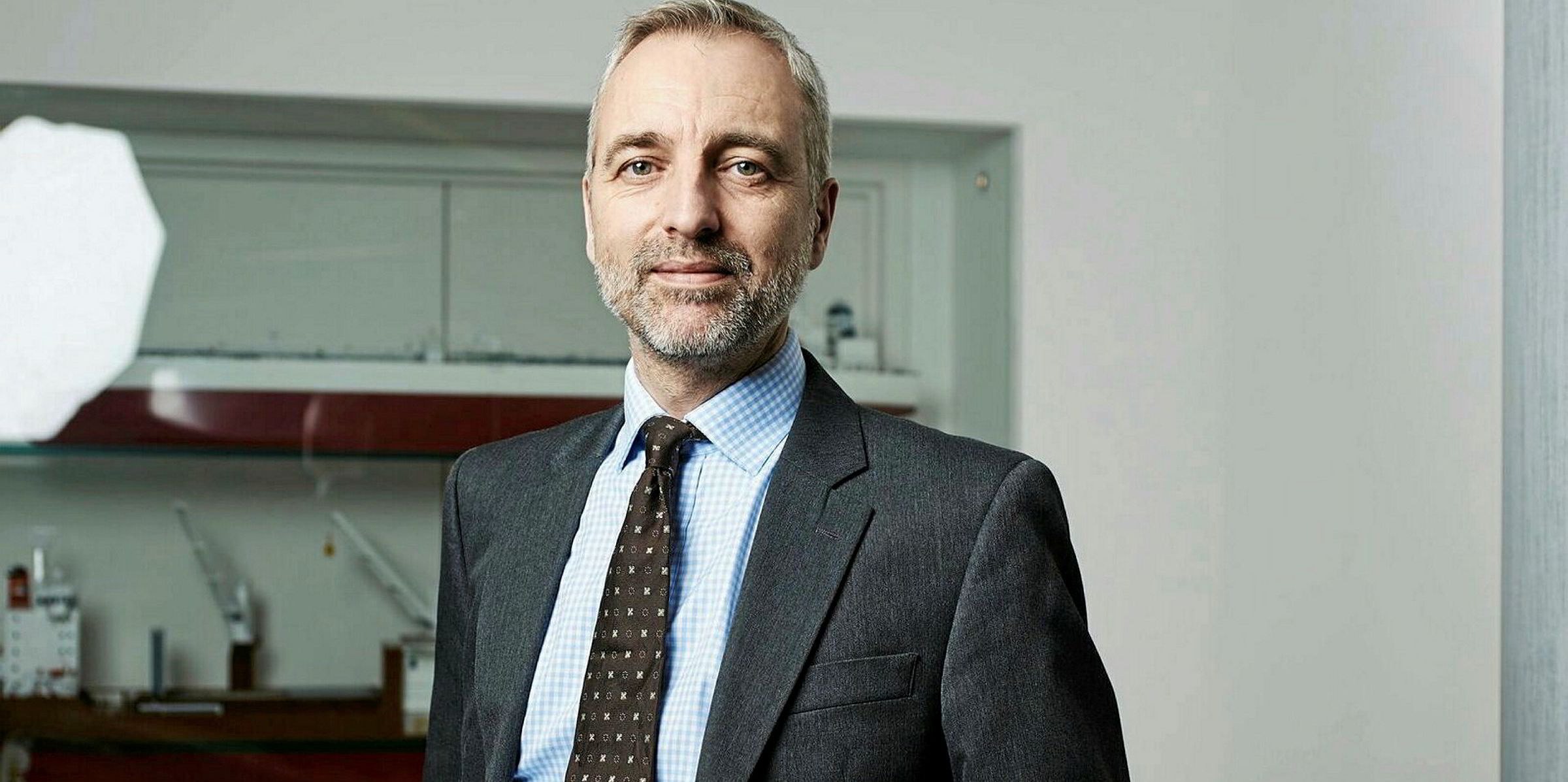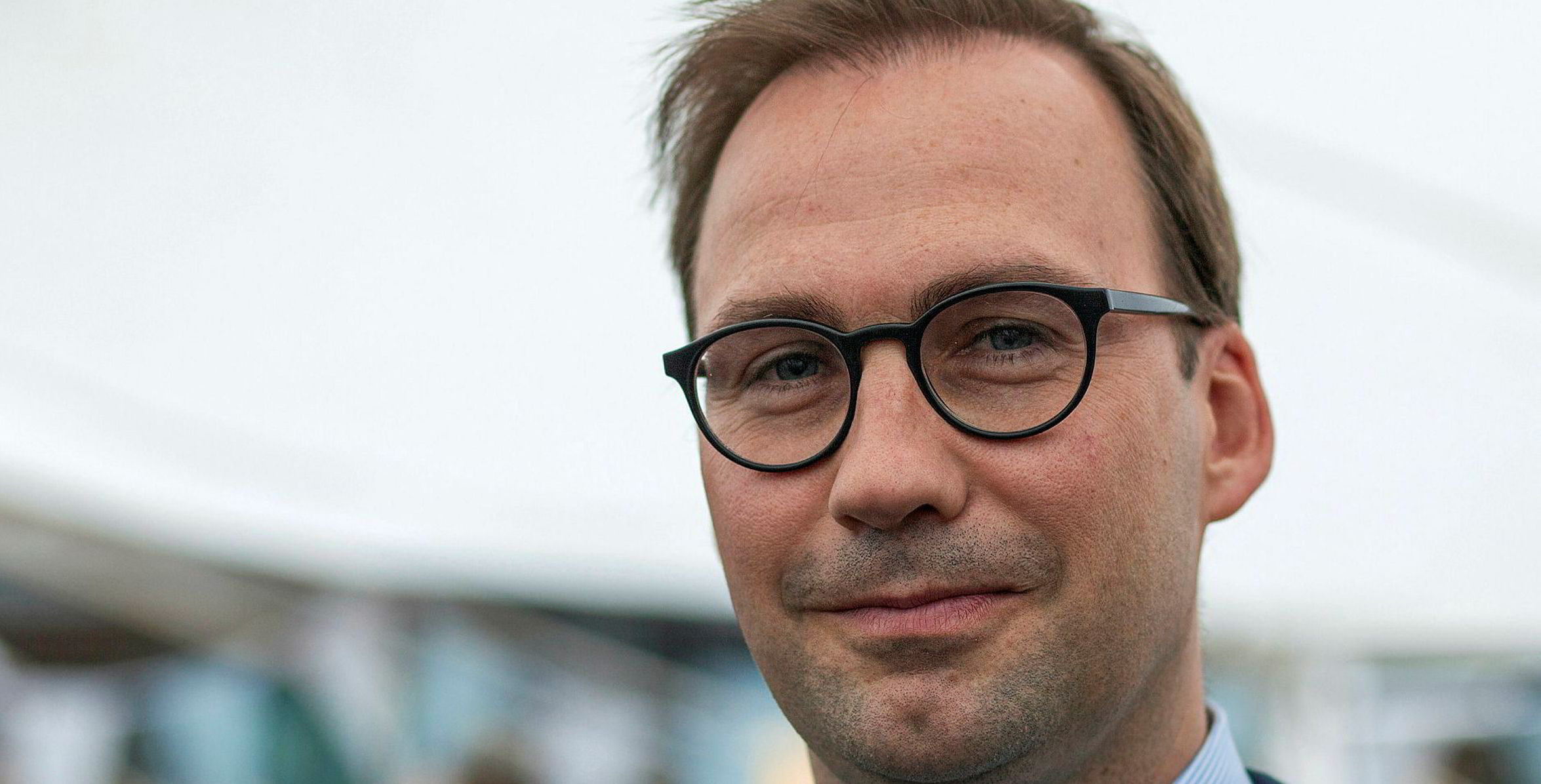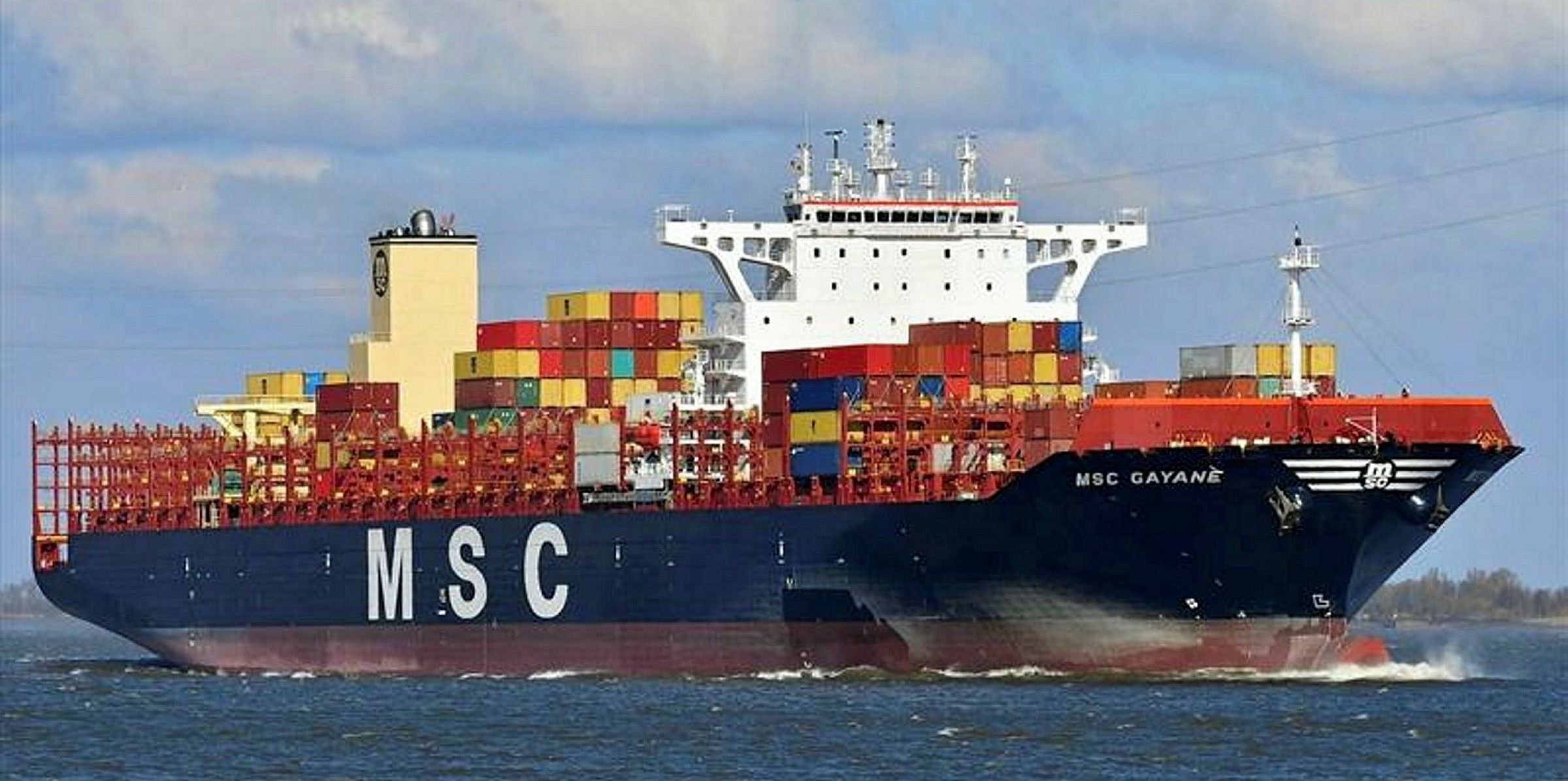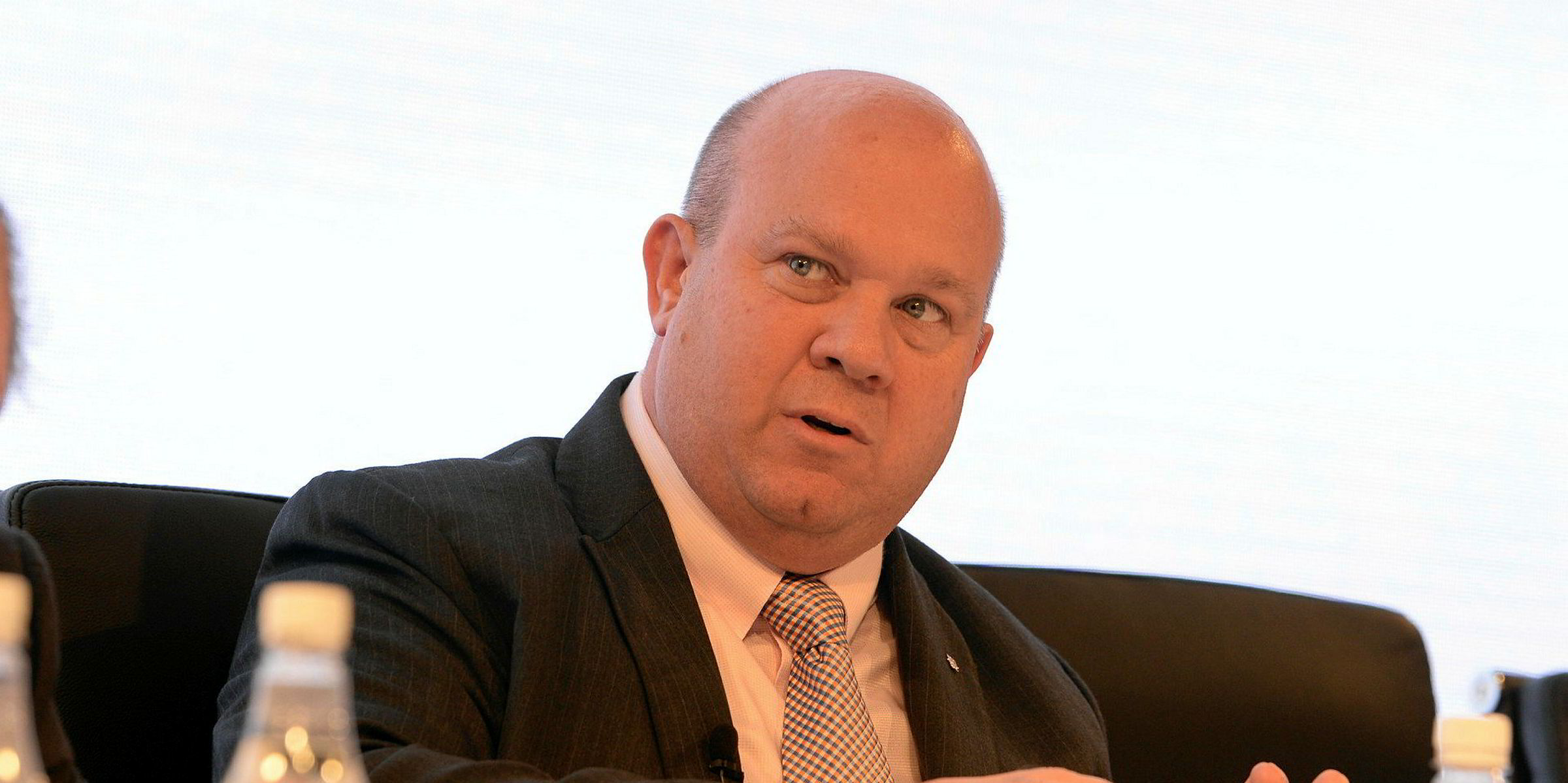SHEREEN ZARKANI
Global Head of Sales, AP Moller-Maersk
In the words of Soren Kierkegaard, “To dare is to lose one's footing momentarily. Not to dare is to lose oneself".
This represents the challenges and opportunities of a carbon-neutral global shipping industry — with the 2020s poised to be the decade for us to identify and develop the new, bold solutions that will get us on track to deliver on the Herculean effort that decarbonisation requires.
No solutions are available today and no one will be able to fix shipping’s emissions on their own. That is why we will be working towards our objective alongside a growing ecosystem of customers, partners, vendors and competitors.
To meet Maersk’s objective of a carbon-neutral fleet in 2050, we have no doubt put ourselves on the spot.
No solutions are available today and no one will be able to fix shipping’s emissions on their own. That is why we will be working towards our objective alongside a growing ecosystem of customers, partners, vendors and competitors.
Recent initiatives, such as the Getting to Zero Coalition, announced at the UN Climate Action Summit in September, and the LEO Coalition, where multiple stakeholders including major shippers explore a blend of lignin and ethanol as a future sustainable fuel, show the strength already backing this ecosystem.
This decarbonisation drive could turn out to be an important point of leverage for change across other hard-to-abate sectors, such as aviation and long-distance road transport, and inspire all of us to work together towards accelerating the decarbonisation across the full supply chain.
Equally important to me, in this ecosystem approach lies a unique opportunity to change the customer conversations as we co-create compelling and sustainable solutions for the future.
This conversation is not a dream — it is already here — and while we have long engaged with the most progressive BCOs [beneficial cargo owners], we are seeing the momentum increasing rapidly also in related segments.
Our customers expect us to take ownership of this challenge — and they are ready to partner and join the journey.
Already today, a range of our key customers are walking the talk, paying a premium for recently introduced carbon-neutral products. It shows we are on the right track and emboldens our efforts in offering customers choice on the path towards a sustainable logistics future.
In solving the climate emissions of container logistics, the 2020s will be a transformational decade where we, like our customers, will have to walk the talk.
We may momentarily lose our footing on the way but will be doing so knowing that we are part of a broader coalition, ultimately driven by the needs of our customers.

CHRISTINE CABAU WOEHREL
Executive vice president, CMA CGM
This year will be a major one for the industry in terms of energy transition and the development of alternative power solutions.
Going beyond the basic regulations of IMO 2020, we are the first company in the world to have ordered ultra large LNG-powered containerships.
CMA CGM will receive its first 23,000-teu ship — the CMA CGM Jacques Saade — in the middle of this year and, by 2022, the group will deploy about 20 LNG-fuelled containerships on our shipping routes.
We are convinced that LNG is the best available energy today to significantly reduce the environmental footprint.
We are convinced that LNG is the best available energy today to significantly reduce the environmental footprint and we want to take action now for more sustainable world transport, with the best technologically proven solutions currently available.
The group will also continue to develop the use of second-generation biofuels. It is essential for our group that our commitment to the protection of the environment is defined in actions, with a concrete roadmap.
This year will also see an acceleration in the development of digital shipping. The group is continuing innovations in blockchain, the Internet of Things and artificial intelligence to better serve our customers and improve performance.
We want to be a leader in a new approach to shipping and global trade in general — more digital and more sustainable and we are getting ready for it.

JONATHAN ROACH
Container market analyst, Braemar ACM
Even though the 2020s do not follow an international financial crisis, as the previous decade did, the challenges and opportunities are quickly shifting from financial to environmental.
The challenge to significantly reduce shipping’s CO2 emissions will be difficult and expensive, but it will provide liner operators with a big opportunity to differentiate their offering in a crowded marketplace.
Research for alternative, renewable and less-polluting shipping fuel will continue to intensify.
The challenge for liner companies is which way to go. There are choices: LNG, ammonia, dual-fuel, biofuel and slower speeds. There is no one solution. Each trade and each liner company will have different strategies and trade constraints to consider.
A combination of all these emissions-reducing initiatives will play its part and will dominate liner company investment in the next decade.
Liner operators will have to be patient and prudent, and will probably not make decisions until fuel and engine research and testing justifies the big investment required for long-term carbon reduction.
For liner companies to thrive in the future, investment in cleaner technology will be essential and equally essential to tonnage providers.

CONSTANTIN BAACK
Chief executive, MPC Container Ships
The world has witnessed no shortfall of technological, regulatory and political disruptions in recent years. For the shipping industry, these monumental shifts have prompted demand for significant changes to occur during the next decade in order to facilitate and adapt to new business models and more sustainable operations.
Digitalisation will eventually mean that ocean transport of containers will be organised in a more efficient manner. The competition among our customers — the liner companies — will change as they will have to place emphasis not only on seaborne transportation by also on other aspects of the logistical chain. In partnering with our customers and providing flexible employment concepts, MPC Container Ships expects attractive opportunities going forward.
From today’s perspective, we believe the 2020s will present opportunities and challenges related mainly to fleet and operational digitalisation, an increasing momentum for — and commitment to — sustainable shipping and the evolution of globalisation versus nationalisation on both a political and macroeconomic level. By closely monitoring these advancements, MPC Container Ships intends to understand and anticipate, among other facets, opportunities within operational efficiency improvements, shifts in global trade, industry consolidations and shipowners’ propulsion of choice for achieving the IMO’s "50 by 2050" greenhouse gas emissions reduction strategy.
As a stock-listed, market-leading containership company specialising in owning and operating feeder container vessels, MPC Container Ships will continue to emphasise being the preferred chartering partner for our customers and generate shareholder value through accretive operations and capital allocation.
In the years to come, we expect stable growth rates for intra-regional trades, for example intra-Asia routes, which are forecast to grow on average 4.4% per annum between 2020 and 2024. On the back of further economic development, China is poised for a changing demand structure, with a noteworthy increase in, for example, frozen food imports yielding new opportunities in the lucrative reefer container market. Meanwhile, feeder vessels will continue to dominate the intra-regional trades as physical and logistical restrictions hinder the entry of larger vessels.
Additionally, we foresee a moderate growth in feeder supply due to low newbuilding activity in light of the uncertainties, both with regards to market outlook and the right propulsion of the future, and increased recycling of feeder vessels. Currently, 19% of the feeder fleet between 1,000 teu and 3,000 teu is above 20 years of age. As those older vessels may be unable to continue operating at cost-efficient levels, we expect attractive opportunities and charter rate recovery potential in our size segment.
Finally, short-haul and intra-regional container transport will continue to grow over the next decade as transport emissions will increase in relevance and consumers will show increased interest for products sourced closer to their home markets.
This is part of a multi-sector series on shipping industry outlook for the decade ahead. Read the full report in this week's print edition.







